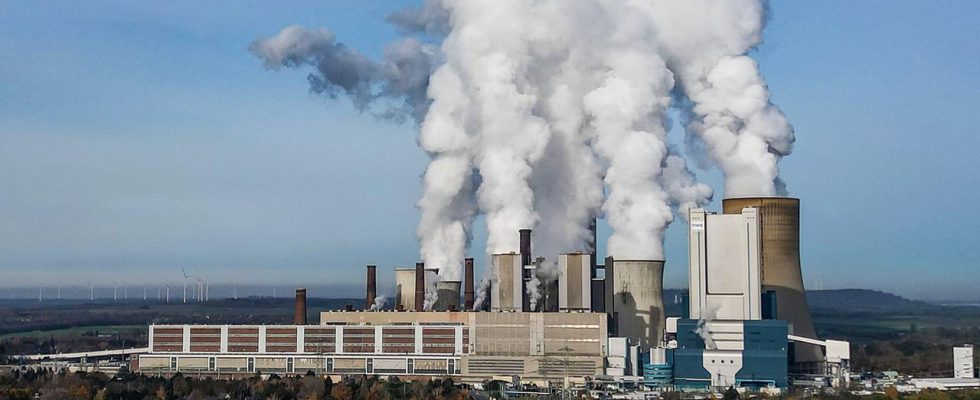Last year, the German state once again generated record proceeds from the sale of greenhouse gas pollution rights. The total revenue amounted to more than 18 billion euros.
Last year, Germany earned around 18.4 billion euros from the sale of CO2 certificates. The greenhouse pollution rights once again brought in record revenues. In 2023, revenue was 40 percent higher than the previous year, as the German Emissions Trading Authority (DEHSt) announced today in Berlin. The DEHSt is located at the Federal Environment Agency.
Revenues are intended to finance climate protection
According to the information, a significant portion of the income came from the national emissions trading system for heat and transport. Significantly more certificates were sold there than in 2022, so that revenue rose by 67 percent to 10.7 billion euros. Revenue from European emissions trading rose by twelve percent to 7.7 billion euros.
The money flows entirely into the Climate and Transformation Fund (KTF). The fund finances the federal government’s energy transition and climate protection measures, including energy-efficient building renovations, the decarbonization of industry and the expansion of renewable energies, electromobility and charging infrastructure.
Companies need to catch up
Contrary to initial assumptions, according to the trading office, the increase in certificates sold in national trading is not due to increased emissions in the transport and building sectors. Based on preliminary estimates, emissions are expected to fall in 2023 compared to 2022.
The reason for the increase was rather the great need for companies to catch up. After politicians decided not to raise the CO2 price last year, they postponed the purchase of their certificates until 2023. The fixed price was 30 euros per certificate in 2022 and 2023.
When will climate money come?
“CO2 pricing through emissions trading is a crucial lever for achieving the legal climate targets,” emphasized the President of the Federal Environment Agency, Dirk Messner. In Germany, over 85 percent of emissions are already covered by emissions trading. This provides significant impetus for the climate-friendly restructuring of society.
“It is crucial that the income from CO2 pricing is used entirely to actively support the climate-neutral transformation through social and economic policy,” said Messner. In this context, he once again called for the coalition’s planned climate money to be introduced quickly “in order to ensure compensation for private households even if CO2 prices continue to rise.”
Climate protection through price incentives
Against the backdrop of climate change, carbon dioxide pricing is intended to give businesses and consumers an incentive to use less fossil fuels. Power plants, large industrial plants and intra-European air traffic require European permits – they must submit a certificate to the emissions trading office for each ton of CO2 emitted.
They can purchase the pollution rights, among other things, at auctions on the energy exchange in Leipzig. The amount of available allowances is reduced annually in order to gradually limit emissions more and more.
Certificates have become significantly more expensive
The prices for European certificates have risen in recent years. While a certificate cost an average of just under 25 euros per tonne of CO2 in 2020, an average of 83.66 euros was due in 2023. The maximum price of the certificates last year was 101.25 euros.
In addition to the European emissions trading system (EU-ETS), which began in 2005, a national emissions trading system (nEHS) started in 2021. The so-called CO2 tax aims to reduce harmful carbon dioxide emissions in the areas of heating and transport. Originally, the nEHS only covered main fuels such as gasoline, diesel, heating oil, liquid and natural gas until 2022. From 2023, all other fossil fuels, including coal, have been integrated into the system.
From 2024, the tax will also be levied on the incineration of waste. The costs are collected from gas suppliers or companies in the petroleum industry, which then pass them on to consumers. The national certificates have now become more expensive. In 2024 they will cost 45 euros per ton. In 2025 the price is expected to rise to 55 euros.

